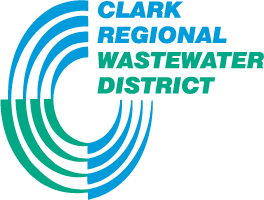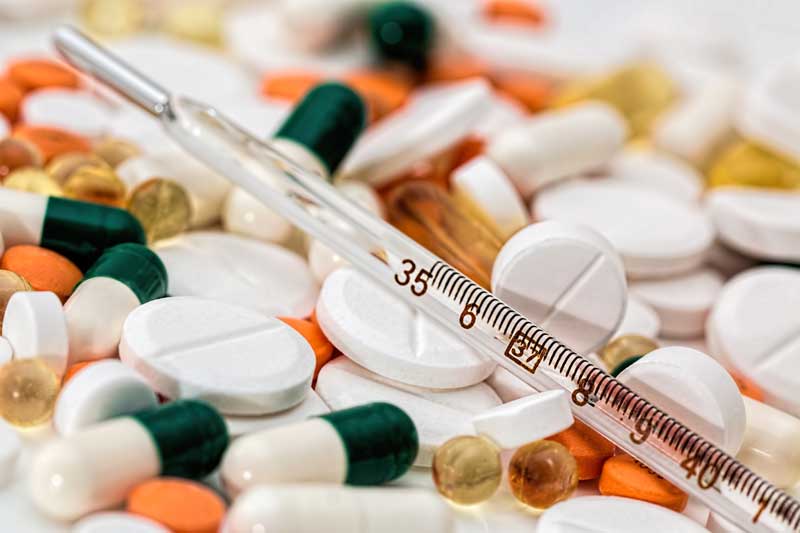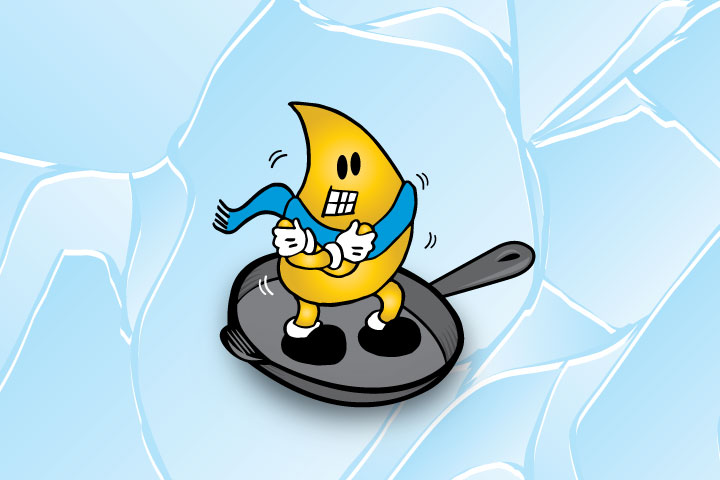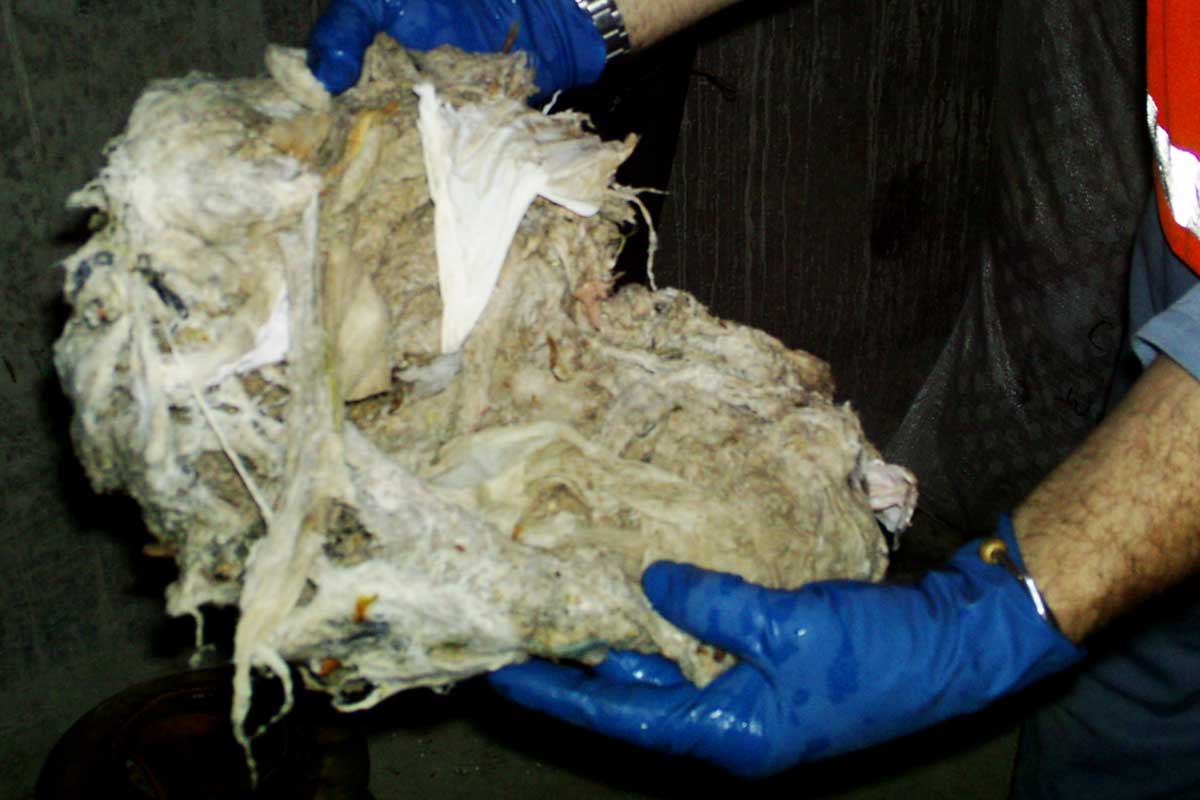Pollution Prevention
All in a Day’s Work: From Your Home or Business to the River in 24 Hours
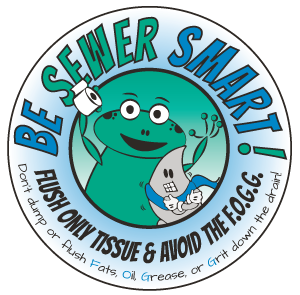 You play an important role in helping us protect the environment and keeping our rivers clean. Every day, eight to 12 million – yes, million! – gallons of wastewater are generated from around our area. The wastewater is safely collected, treated and discharged into the Columbia River within approximately 24 hours. Therefore, be mindful of the products you use and what you flush or dispose of down the drain, because it may be reaching the river before the day’s over. From the products you purchase to how you dispose of them, your choices impact what ends up in our water. Many of the common and emerging pollutants found in wastewater are introduced through products used around the home. Treatment plants are designed for human waste, they are not designed or can’t cost effectively remove things like medications, micro-beads, PFAS, wipes and other products. You can help by being informed and making safer choices, choosing products that work for you and are better for human health and the environment. You can start by checking out the information and resources below.
You play an important role in helping us protect the environment and keeping our rivers clean. Every day, eight to 12 million – yes, million! – gallons of wastewater are generated from around our area. The wastewater is safely collected, treated and discharged into the Columbia River within approximately 24 hours. Therefore, be mindful of the products you use and what you flush or dispose of down the drain, because it may be reaching the river before the day’s over. From the products you purchase to how you dispose of them, your choices impact what ends up in our water. Many of the common and emerging pollutants found in wastewater are introduced through products used around the home. Treatment plants are designed for human waste, they are not designed or can’t cost effectively remove things like medications, micro-beads, PFAS, wipes and other products. You can help by being informed and making safer choices, choosing products that work for you and are better for human health and the environment. You can start by checking out the information and resources below.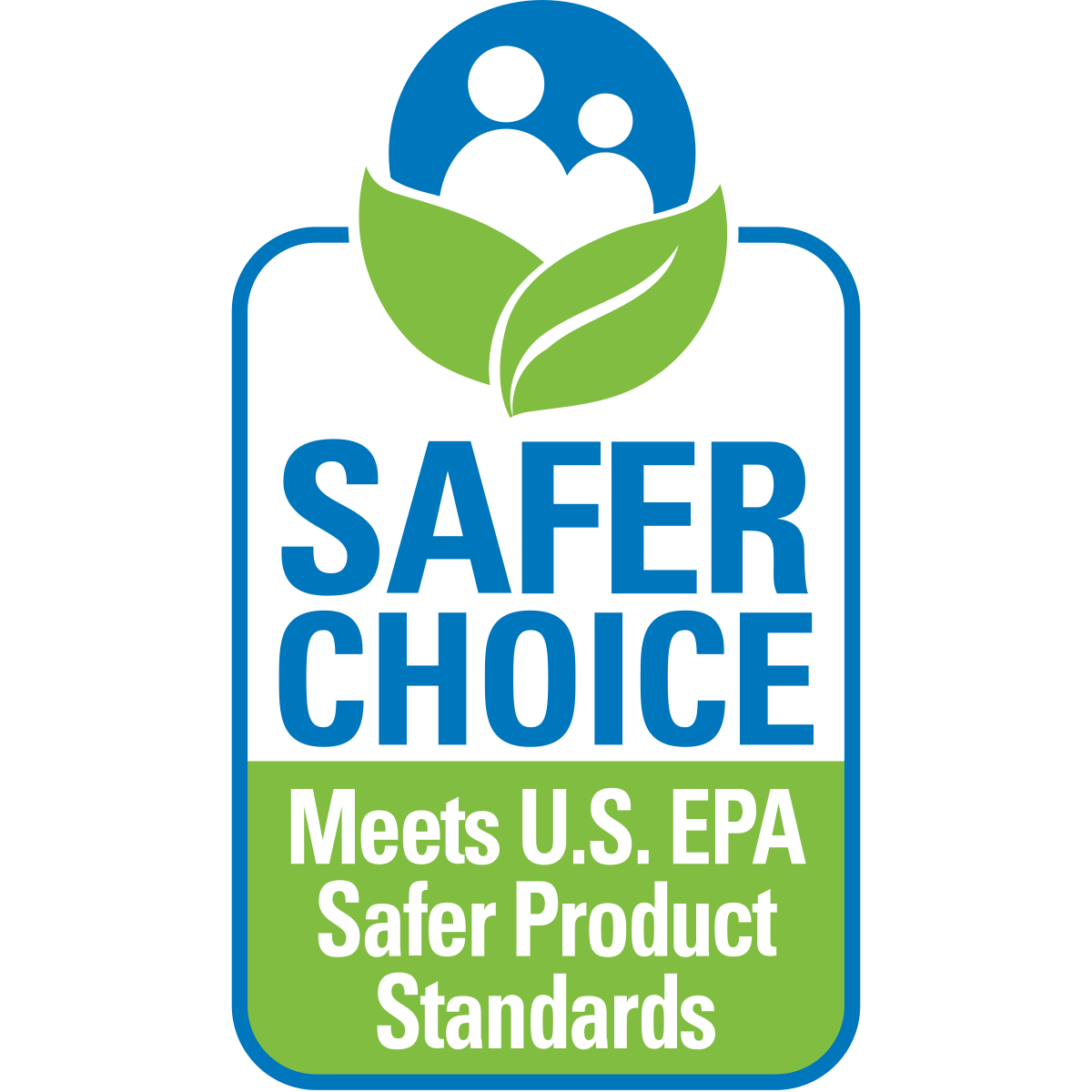
- EPA Safer Choice
- Discovery Clean Water Alliance
- ewg Consumer Guides
Keep our groundwater clean by safely disposing of prescription medications and personal care products. More »
Cooking oil, grease and fats poured down drains can build up in pipes and cause backups in your home or business. Sign up for a free Freeze the Grease kit today. More »
Wipes, diapers and many other household items should never be flushed down the toilet. Please flush only toilet tissue. More »
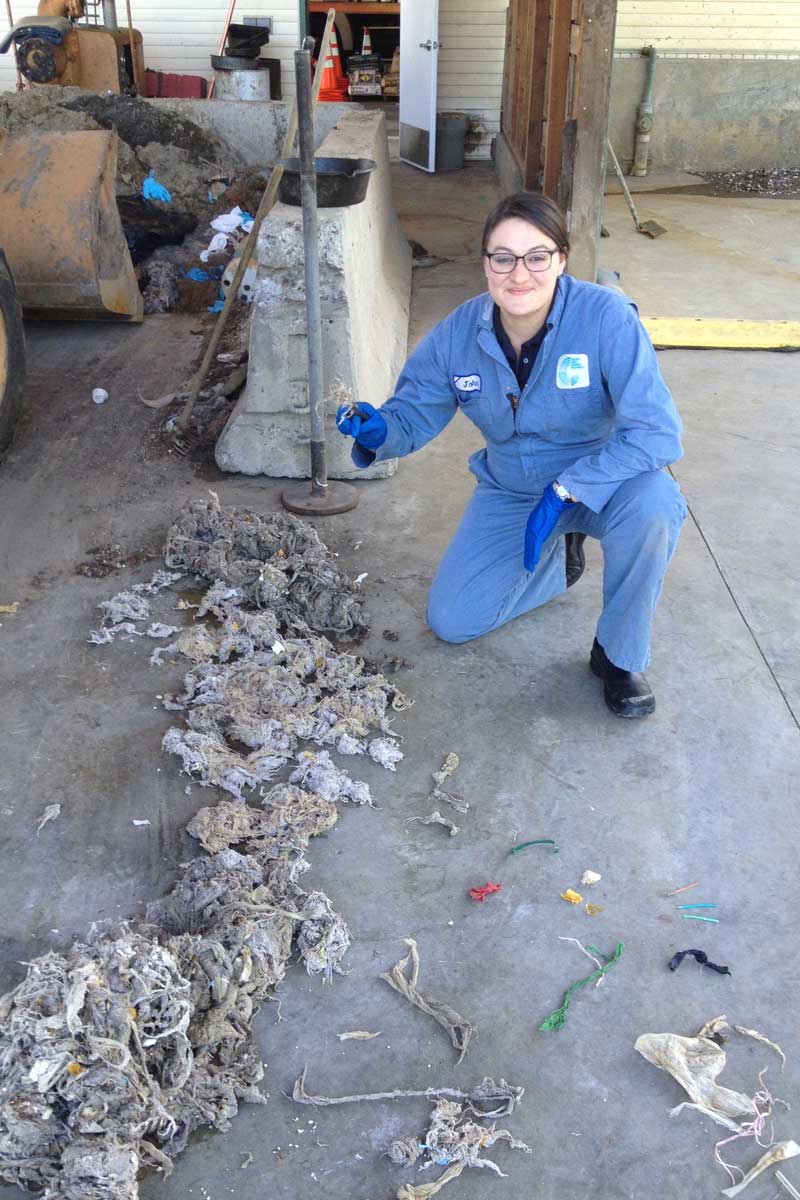
Pretreatment Coordinator dissecting a “rag ball” removed from a pump station.
Did You Know?
Ever wonder what people flush? As wastewater enters the treatment plant, it passes through screens to remove non-biodegradable material, including garbage. Each year, almost 200 TONS of material is removed at the plant and taken to the landfill. This is in addition to all of the garbage and debris that is removed from the collection system before it reaches the plant. This includes such common household items like wipes, paper towels, dental floss, diapers, candy wrappers, latex products, toys, and other trash. It is critical that this material is removed from the system because it can damage the equipment and it can cause blockages in the system. Not only is it harmful to the system, but it is also expensive. It is by far cheaper, safer and better for the environment to dispose of this material directly into the trash can.
